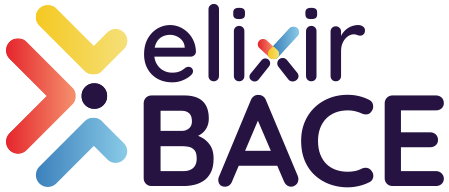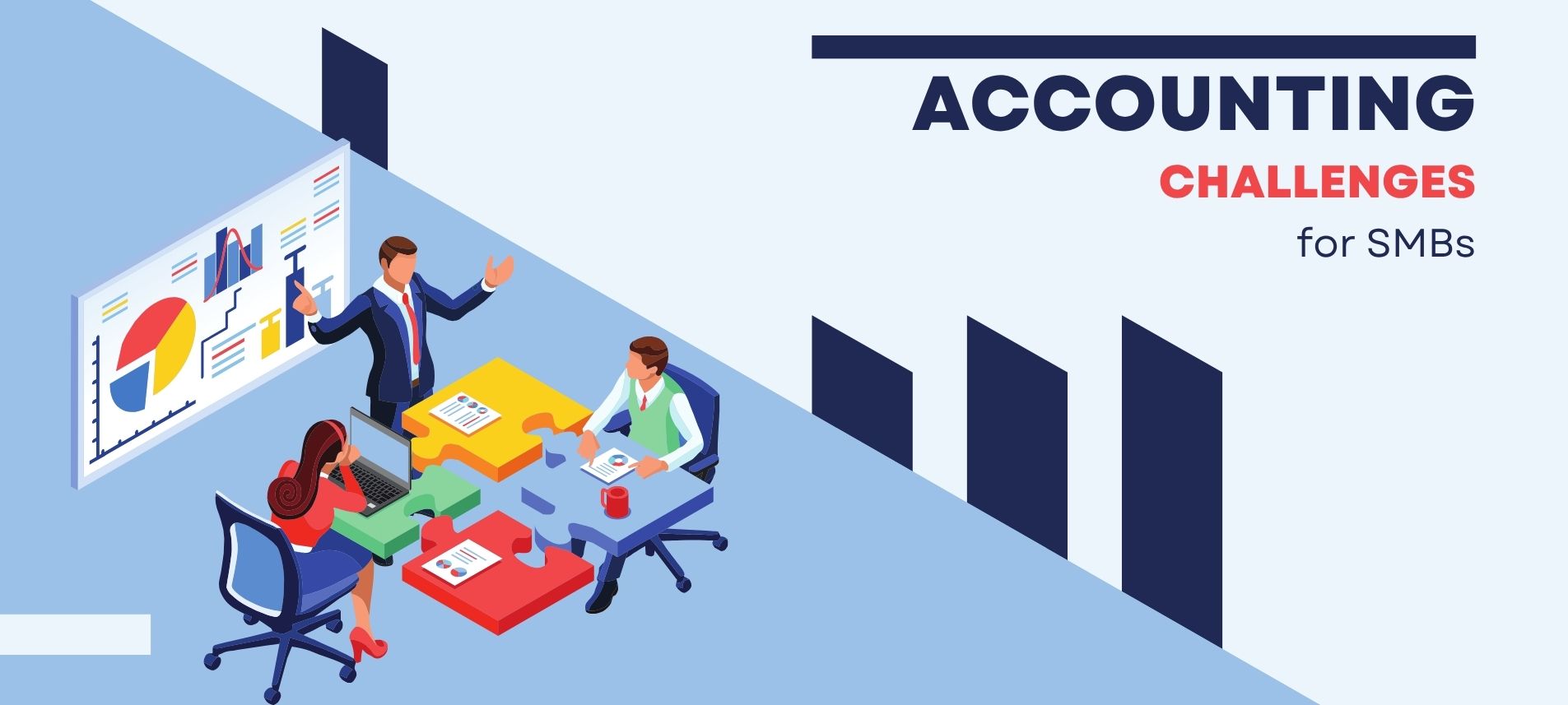Small and mid-sized businesses (SMBs) are the backbone of many economies around the world, fueling innovation, job creation, and community development. Yet, despite their critical role, SMBs face numerous obstacles that can impede their growth and profitability. Among these challenges, accounting often stands out as a major source of complexity and risk. Managing finances effectively is vital for sustaining operations, securing investments, and making data-driven decisions. However, many SMBs find themselves struggling with issues like cash flow management, regulatory compliance, budgeting, and adopting new technologies—all of which require sound accounting practices. In this comprehensive blog post, we’ll explore the most common accounting challenges that SMBs face and discuss practical strategies for addressing them head-on.
Limited Financial Expertise
- The Knowledge Gap
One of the most glaring challenges SMBs encounter is a lack of in-house financial expertise. In larger organizations, you might find entire departments dedicated to accounting, tax compliance, and financial analysis. Smaller businesses, however, often have a lean team where each member wears multiple hats. In some cases, the business owner is the de facto accountant, juggling tasks that range from sales and marketing to operations and HR.
- Consequences of Insufficient Expertise
When financial planning and accounting responsibilities fall on individuals who lack specialized training, errors can creep into the books. Missed deductions, overlooked payroll taxes, or mismanaged budgets can all become expensive mistakes. Moreover, these slip-ups can affect strategic decisions. For instance, an owner might assume the business is profitable and choose to expand, only to discover they’ve been underestimating costs and overestimating revenue.
- Overcoming the Knowledge Gap
To address the issue of limited financial expertise, consider hiring a part-time accountant, engaging an external bookkeeping service, or investing in training for key staff members. Some SMBs use online courses or webinars to quickly boost financial literacy within their teams. Establishing relationships with professional accountants or financial consultants can provide guidance during critical business milestones—such as tax season, audits, or growth-related financial planning.
Budget Constraints and Resource Allocation
- Tight Margins and Financial Pressures
Most SMBs operate with tighter margins than larger corporations. This makes every financial decision—be it hiring additional staff, purchasing new equipment, or expanding marketing efforts—a calculated risk. The pressure to manage expenses carefully can make it difficult to allocate resources for robust accounting processes, technology upgrades, or professional support.
- Impact on Accounting Software
Due to budget constraints, some SMBs rely on outdated or piecemeal software solutions for their accounting, payroll, and bookkeeping needs. While these may be cost-effective in the short term, they can introduce inefficiencies and errors in the long run. Inaccurate financial data could lead to flawed strategic decisions, missed tax deadlines, or compliance issues that result in penalties.
- Making the Most of Limited Resources
SMBs can tackle budget constraints by prioritizing investments that yield the highest returns. Implementing cloud-based accounting platforms, for instance, can be more affordable than purchasing expensive on-premises solutions. Additionally, consider phased adoption of accounting tools—starting with critical modules like invoicing and general ledgers, then scaling up as the business grows. Grants, small business loans, and government-backed financial support programs can also help fund essential financial infrastructure.
Cash Flow Management
- The Lifeblood of SMBs
Cash flow is the lifeblood of any organization, but it is especially critical for small and mid-sized businesses that often lack the financial cushion of larger corporations. Late payments from clients, unexpected expenses, or seasonal fluctuations in revenue can severely strain an SMB’s ability to cover day-to-day costs like payroll, rent, and utilities.
- Common Pitfalls
A frequent mistake in cash flow management is focusing solely on profit rather than liquidity. Even if the business is profitable on paper, a shortage of cash on hand can lead to insolvency. Poor invoicing practices—such as sending out invoices late or failing to follow up on overdue payments—can exacerbate the issue. Additionally, a lack of accurate forecasts can leave businesses unprepared for seasonal downturns or sudden spikes in operating costs.
- Strategies for Better Cash Flow
To stabilize cash flow, SMBs should establish clear payment terms and use automated invoicing tools that promptly remind clients of upcoming or overdue bills. Creating a cash flow forecast is another essential step—look at historical data to anticipate future expenses and revenue streams. If cash shortages become chronic, consider exploring alternative financing options like invoice factoring or a line of credit to bridge temporary gaps.
Bookkeeping Complexities
- The Importance of Accurate Records
Bookkeeping—maintaining accurate records of all financial transactions—is foundational to any accounting system. Despite its fundamental role, it’s easy to underestimate how complex bookkeeping can get, especially if a business deals with diverse revenue streams, variable expenses, or multiple currencies.
- Risks of Poor Bookkeeping
Errors in bookkeeping can lead to inaccuracies in financial statements, complicating tax filings and regulatory compliance. SMB owners might make misguided business decisions based on flawed data—potentially investing in new projects or scaling operations at the wrong time. In the worst-case scenario, poor record-keeping can invite audits, fines, and damage to a company’s reputation.
- Streamlining the Bookkeeping Process
Adopting cloud-based bookkeeping solutions can automate repetitive tasks, reduce human error, and keep real-time records accessible to authorized team members. Regular reconciliation—comparing account balances with bank statements—helps detect discrepancies early. Some SMBs outsource their bookkeeping to specialized agencies or freelance bookkeepers, allowing business owners to focus on strategic tasks while ensuring the day-to-day ledger entries remain accurate.
Tax Compliance and Regulatory Hurdles
- Complexity of Tax Codes
Tax regulations, both at the national and local levels, can be incredibly intricate. For SMBs, staying compliant with constantly evolving tax codes is an ongoing challenge. Sales tax, payroll tax, income tax, and other levies may apply differently based on the products or services offered, as well as the locations where the business operates.
- Risk of Penalties and Audits
Failing to meet tax deadlines or properly report tax liabilities can result in significant fines, penalties, and even legal issues. Audits can be particularly draining for SMBs, diverting resources and attention away from regular operations. Worse, reputational damage can linger if a company is found to be non-compliant or engaged in questionable financial practices.
- Staying Ahead of the Curve
To navigate this maze of regulations, many SMBs hire tax professionals or outsource their tax filing to specialized firms. Integrating accounting and tax software ensures that necessary data—such as revenue, expenses, and payroll—is accurately captured for tax calculations. Regularly consulting with legal and tax experts can also help businesses stay updated on the latest changes to tax codes, ensuring they remain compliant and avoid surprises.
Adopting and Integrating Technology
- Hesitance to Embrace Digital Tools
Despite the proliferation of affordable, user-friendly accounting software, some SMBs remain resistant to embracing new technologies. This could be due to lack of awareness, concerns about data security, or worry over potential disruptions during the implementation phase.
- Consequences of Outdated Systems
Relying on spreadsheets or disconnected software solutions can slow down operations, increase the likelihood of errors, and make real-time reporting nearly impossible. These limitations can, in turn, hamper agility—SMBs might miss out on emerging market opportunities if they lack accurate and timely financial insights.
- Building a Future-Ready Tech Stack
Adopting integrated accounting software can streamline tasks such as payroll, invoicing, and financial reporting. Cloud-based platforms offer anywhere, anytime access, which is particularly helpful if staff members or external accountants work remotely. Additionally, newer systems often have features like role-based access controls and automated backups, addressing security concerns. The key is to choose solutions that can scale alongside the business and align with specific operational needs.
Regulatory Compliance Beyond Taxation
- Evolving Financial Regulations
Beyond tax compliance, SMBs may be subject to various industry-specific regulations, from data privacy laws like GDPR to government-backed loan requirements and environmental standards. Even if these regulations don’t directly deal with accounting, they can influence financial processes and reporting requirements.
- Financial Reporting and Documentation
Many regulatory frameworks mandate detailed documentation of business transactions, customer data, and other records. Inconsistent or incomplete financial reporting can result in hefty fines and legal challenges, jeopardizing an SMB’s financial stability and reputation.
- Proactive Compliance Management
To handle non-tax regulatory requirements, SMBs can maintain a centralized repository of financial and operational data. Implementing a robust document management system helps track version histories, approvals, and compliance checklists. Regular internal audits or compliance assessments can catch issues early, giving businesses time to make corrections before facing external inspections or audits.
Payroll and HR Complexities
- Multifaceted Responsibilities
Managing payroll isn’t just about calculating wages; it also involves withholding taxes, providing benefits, complying with labor laws, and ensuring accurate time tracking. As SMBs grow, these tasks become more complex—especially if remote employees, freelancers, or shift-based workers enter the mix.
- Errors That Carry Consequences
Payroll mistakes can harm employee trust and lead to legal disputes or fines. Late or incorrect pay can damage morale, reduce productivity, and increase turnover rates. Over time, repeated payroll errors can tarnish an SMB’s reputation, making it harder to attract top talent.
- Payroll Solutions and Best Practices
Investing in payroll software or integrating a payroll module within a larger accounting platform can automate many tasks, from calculating deductions to generating pay stubs. Many solutions also update in real-time to comply with labor regulations and tax changes. Outsourcing payroll to a professional employer organization (PEO) is another route, allowing SMBs to streamline their HR and focus on other crucial business functions.
Data Security and Privacy Concerns
- The Rising Threat of Cybercrime
As SMBs move toward digital solutions for accounting and financial management, cybersecurity becomes a pressing concern. A single data breach or ransomware attack can lead to financial losses, erode customer trust, and potentially shutter operations—especially when margins are tight.
- Common Vulnerabilities
Phishing emails, weak passwords, outdated software, and unsecured networks are some of the common entry points for cybercriminals. SMBs that rely on free or low-cost software solutions may not receive regular security patches, leaving systems open to exploits. Additionally, some organizations store sensitive financial data on local drives without proper encryption.
- Safeguarding Financial Data
Data security involves both technological and behavioral solutions. On the tech side, SMBs can implement multi-factor authentication (MFA), encryption, firewalls, and secure cloud storage solutions. On the behavioral side, regular staff training on identifying phishing schemes and practicing good password hygiene can prevent many attacks. An incident response plan should also be in place, outlining immediate steps to take if a security breach occurs.
Practical Tips for Overcoming Accounting Challenges
- Leverage Cloud-Based Tools:
Automate routine tasks like invoicing, reconciliation, and payroll calculations to minimize manual errors and save time.
- Seek Professional Guidance:
Work with accountants or financial advisors who specialize in your industry. These experts can flag potential pitfalls and keep you updated on regulatory changes.
- Adopt a Rolling Forecast:
Move beyond annual budgets by periodically revisiting and adjusting financial forecasts to reflect evolving market conditions.
- Implement Internal Controls:
Even basic protocols—like requiring two signatures on checks above a certain amount—can reduce fraud and enhance accuracy.
- Train Your Team:
Provide ongoing training in financial literacy, data security, and best practices for record-keeping. A knowledgeable team is a critical asset for any growing SMB.
Conclusion
Accounting for SMBs is undeniably challenging, but it’s also an area where proactive strategies and the right technology can have a transformative impact. From cash flow management and regulatory compliance to payroll and cybersecurity, each aspect of accounting requires careful planning, execution, and oversight. While limited resources and financial expertise can make these tasks daunting, prioritizing accounting best practices is not optional—it’s essential for both short-term stability and long-term growth.
By understanding common pitfalls and implementing actionable solutions—such as adopting cloud-based accounting software, seeking professional advice, and maintaining rigorous bookkeeping—SMBs can overcome their accounting challenges. In turn, this robust financial foundation enables business owners to pursue expansion opportunities with confidence, secure funding more easily, and make strategic decisions rooted in accurate, timely data. Ultimately, tackling these accounting challenges head-on lays the groundwork for innovation, sustainability, and continued success in a competitive marketplace.
FAQs About Cloud Accounting Software
Q1. What are the most common accounting challenges for SMBs?
Small and mid‑sized businesses often deal with manual data entry errors, lack of real‑time reporting, tedious reconciliations, and compliance issues—all of which can be solved by using a modern solution like Elixr Books.
Q2. Can a solution like Elixr Books help with real-time financial visibility?
Yes. It provides up‑to‑date dashboards showing cash flow, profit/loss, and expense breakdowns—so you can make informed decisions quickly.
Q3. How does Elixr Books handle compliance and reporting?
Elixr Books is GST-compliant and includes pre-built reports, audit trails, and easily exportable financial statements—making it simple to stay audit-ready.
Q4. Can consultants and accountants work together with Elixr Books?
Definitely. Multiple users can collaborate on Elixr Books in real time—no need to send files or switch platforms, leading to a smoother workflow.
Q5. How can I get started with Elixr Books?
Elixr Books offers a free trial and guided demos. You can explore features like dashboard views, GST compliance, and audit trail before deciding.




